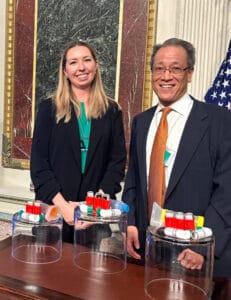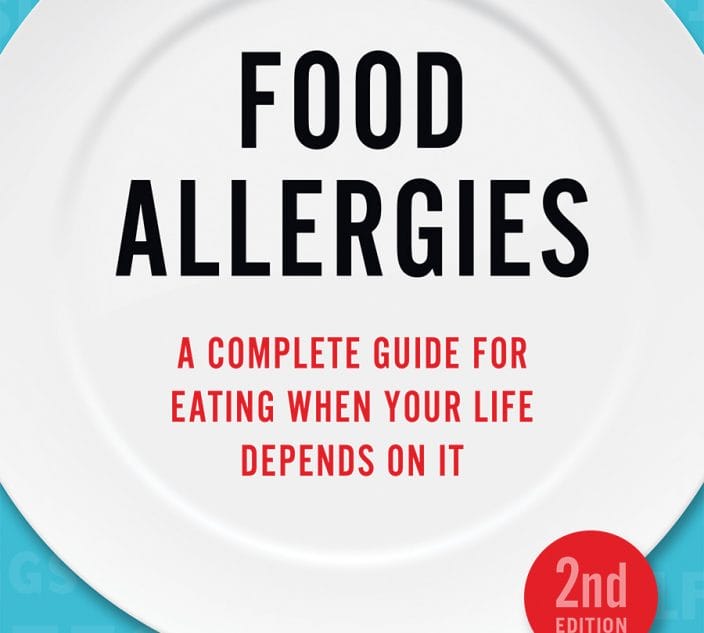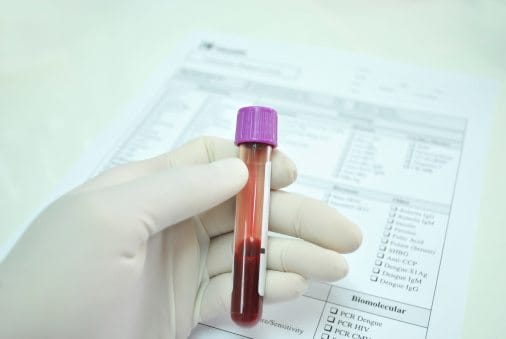Asthma advocacy groups are applauding the move by major pharmaceutical companies to cap the price of their respiratory inhalers. The out-of-pocket costs for some asthma patients in the United States will be no higher than $35 per month.
Drugmakers AstraZeneca, Boehringer Ingelheim and GlaxoSmithKline (GSK) have announced that they will cap the costs on inhaler products for patients with asthma and COPD (chronic obstructive pulmonary disorder). AstraZeneca and Boehringer Ingelheim will implement the cost limit by June 1, 2024. GSK will do the same by January 1, 2025.
“We commend these major drug companies for providing solutions for patients,” says Lynda Mitchell, CEO of the Allergy & Asthma Network (AAN) nonprofit.
“We consider this a win for patients getting affordable access to the inhalers they need,” she says. AAN has posted a list of medications that will be included in the inhaler price caps.

The action is especially welcome because asthma patients tend to ration or discontinue using medication because of high costs, says Kenneth Mendez, president and CEO of the nonprofit Asthma and Allergy Foundation of America (AAFA).
“Our research tells us the high cost of inhalers is the primary barrier to treatment,” Mendez told Allergic Living.
The decision to make inhalers more affordable comes after lawmakers criticized the three pharmaceutical companies, along with Teva Pharmaceuticals, for high inhaler costs. Teva, which has not announced a price cap, did not respond to a request for comment.
The U.S. Senate Committee on Health, Education, Labor and Pensions (HELP), chaired by Senator Bernie Sanders, launched an investigation into inhaler costs in January 2024.
Lawmakers’ Probe and Inhaler Price Caps
“No American who needs an inhaler to live a healthy life, especially children, should be forced to ration or forgo their medication because of cost,” Senator Tammy Baldwin said in a statement. “It is time we hold big pharmaceutical companies accountable for price gouging Americans,” said Baldwin, a member of the HELP committee.
HELP committee members Sanders, Baldwin and Senators Ben Ray Luján and Ed Markey sent letters to the four drug companies. The senators called them out for inhaler costs, which often run between $200 and $600 per inhaler each month.
The lawmakers compared pricing for inhaled products in the United States to other countries. For example, according to their statement, asthma and COPD drug costs have included:
- Advair HFA (GSK): $319 in the United States; $26 in the United Kingdom.
- Combivent Respimat (Boehringer Ingelheim): $489 in the U.S.; $7 in France.
- Breztri Aerosphere (AstraZeneca): $645 in the U.S.; $49 in the U.K.
- QVAR RediHaler (Teva): $286 in the U.S.; $9 in Germany.
AAFA, which advocates for asthma drug affordability and access, contributed to the lawmakers’ investigation. The organization credits the senators’ work for the action by the three pharmaceutical firms. “There’s no question the HELP investigation pushed the companies to act,” Mendez says.
Impact of Patients Voices, Disparities
AAFA shared patient stories and information from its Asthma Disparities in America report with the HELP Committee in the fall of 2023. The research reveals that asthma takes a huge toll on Black, Hispanic and Indigenous populations in terms of prevalence, hospital visits and deaths. It shows that U.S. communities of color clearly bear the greatest burden of asthma, Mendez says.
“Our report makes clear that this is entirely preventable if there is access to medicine,” he says.
The patient stories had a powerful impact on lawmakers and pharmaceutical companies alike. “AAFA put the patient voice in front of the HELP committee and the committee investigation raised this voice,” Mendez says.

Patient stories are also instrumental in the Allergy & Asthma Network’s continuing push for affordable asthma drugs. The experiences of asthma patients and access to asthma medicine will be focuses of the nonprofit’s annual event, Asthma and Allergy Day on Capitol Hill. This year’s event will be held on May 8, 2024.
The continued advocacy and the federal investigation spurred the pharmaceutical companies’ current inhaler price caps action. For many consumers, that will provide much-needed relief.
Pulmonologist Dr. Christopher Oermann applauds these efforts and says cuts to inhaler costs will positively impact many of his patients. “The planned caps will help families immensely. This will dramatically improve access to these medications for so many families,” he says.
Oermann is the division director for Allergy, Immunology, Pulmonary and Sleep Medicine of Children’s Mercy Kansas City in Missouri. He has often had difficult conversations with families about whether they will buy asthma medications for their kids or put food on the table.
However, Oermann still has concerns about the availability of appropriate asthma medication.
Flovent Fallout Continues
While reducing out-of-pocket costs through inhaler price caps will help many patients, availability and affordability remain obstacles, according to Oermann.
He says the discontinuation of GSK’s widely prescribed Flovent inhalers as of January 2024 continues to impact access to asthma medication.
For example, Asmanex (mometasone), an inhaler that physicians are prescribing as a replacement for Flovent, is in short supply. Drugmaker Organon attributes the national shortage to an increase in demand following the discontinuation of Flovent.
“Price caps won’t improve availability,” Oermann says. “Availability and cost are still contributing to a healthcare crisis for children with asthma.”
Asmanax is not among the inhalers currently slated for price caps. Nor is the authorized generic inhaler that is the direct replacement for Flovent. The generic version does not fall under GSK’s pricing, as it is marketed by Prasco Laboratories. Prasco did not respond to Allergic Living’s request for comment.
Oermann says many of the asthma medications on the price cap list are not appropriate for some children based on their age and ability. “This will continue to limit availability, based on cost, to many families.”
Inhaler Price Caps: Big First Step
Mendez agrees that more work is needed to improve access and affordability. AAFA continues to urge key players, such as manufacturers, pharmacy benefit managers, insurance companies, employers, and federal policymakers to take steps to lower the cost of asthma inhalers.
The nonprofit’s efforts have not gone unnoticed. President Biden recently recognized AAFA’s advocacy work on behalf of people with asthma with an invite to the White House. Mendez and Jenna Riemenschneider, AAFA’s senior director of policy and advocacy, joined Biden and Sanders on April 3 for a White House briefing on health costs and inhaler pricing.
“On behalf of the 27 million people in the United States with asthma, we appreciate the leadership of President Biden and Senator Sanders to bring down costs for asthma treatments,” Mendez said in a statement.
The asthma landscape continues to include access and affordability issues. But the move by the three pharmaceutical companies to implement price caps on asthma inhalers is certainly welcome news.
The action is “an important first step in addressing the high cost of medicine, and placing treatment for asthma within reach for many patients,” Mendez says.
Related Reading:
With Popular Asthma Inhaler Off Shelves, Access Concerns Rise
How Climate Change Leads to a Surge of Pollen Allergies
Nothing to Sneeze at: New Strategies for Cat Allergy





